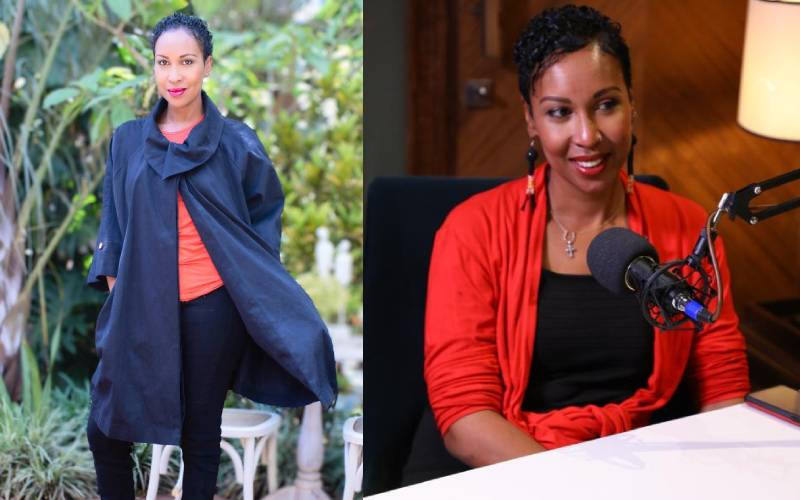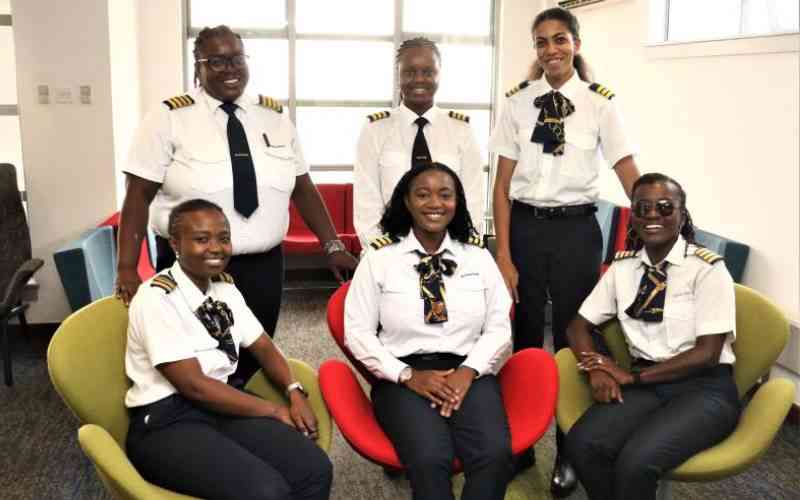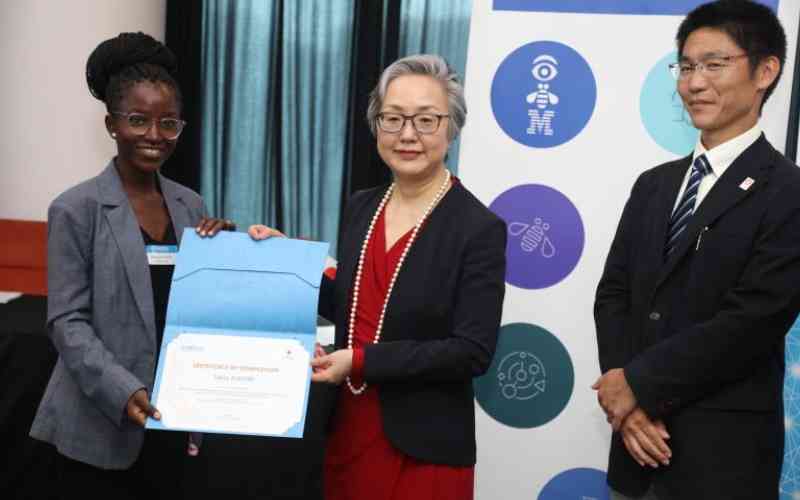
Despite having never stepped into any secondary school, Hilda John, Susan Mueni and Stella Kathulu are all diploma students at the Meru National Polytechnic.
This means that the three, regardless of not having done KCSE as per the ‘regular’ school curriculum still managed to make it to an institution of higher learning.
This was made possible courtesy of the little known Technical and Vocational Education and Training (TVET) system. It is a programme identified by the Ministry of Education under the Technical and Vocational Education and Training Authority (TVETA).
The authority was established under the Technical and Vocational Education and Training Act of 2013 and assented into law by the President on January 14, 2013. TVET offers an alternative to secondary education but with emphasis on training of practical skills.
Hilda, Mueni and Kathulu are among the many students who have benefited from this alternative education path. The trio were students at St Columbas Vocational Training Centre in Mutune, Kitui County and are now all pursuing a diploma in fashion design.
Hilda completed her primary education at Kavingo Primary School in 2008 scoring 208 marks out of the possible 500. Mueni on the other also scored 221 marks in KCPE at Mbukoni Primary School, Machakos while Kathulu scored 234.
Looking at how the 8-4-4 system is structured, these three students would be regarded failures because of the conditioning we’ve been exposed to that success can only come in one way – through excellence in KCPE and KCSE exams.
Hilda says: “When I saw that I had little marks in KCPE, education became the last thing on my mind and I decided to pursue skills training. I did not know this was another path that I could use to further my education”. Hilda wants to pursue a doctorate in fashion design and says that she is on the right path.
Mueni says at primary school, she had no idea why she was in school hence did not take her studies seriously. So, when KCPE results were announced, her parents took her to do a course in fashion design, also at St Columbas.
“I plan to become a full-fledged designer and plan to one day teach fashion design,” she said.
The three students did four years at St Columbas where they did exams at two levels. Both examinations were administered by the Kenya National Examinations Council (KNEC).
Hilda and Mueni, who graduated from St Columbas in July 2014, are now in their final year at Meru Polytechnic.
Kathulu who wants to be a lecturer says: “I plan to further my studies at Kenya Technical Teachers College so that I can teach fashion design”.
Meru National Polytechnic is one of the institutions offering courses that fall within the TVET programme.
Registrar Francis Kimani says the programme offers learners an alternative way to achieve their goals apart from the primary to secondary to university system on which a lot of emphasis has been laid.
Kimani says technical and vocational training allows students to pursue their areas of interest as opposed to having to study all subjects which they might not even apply later in life.
“Minimum entry requirement for these vocational courses is KCPE certificate after which learners undertake a majorly practical education where practicals constitute 80 per cent while the rest is theory,” he says.
Kimani further explains that the progression starts from artisan certificate to craft certificate with a KNEC exam done at the end of each stage. After this, students are eligible to join the diploma level in their particular field.
“At diploma level, learners take three modules punctuated by two industrial attachments before the final exam at the end of the third module,” he says.
From here, learners can join a degree course along the same line. Currently, just Technical University of Kenya and Technical University of Mombasa are accepting learners who have gone through the TVET programme. Other universities still insist on KCSE as a requirement.
Following the TVET system, learners do eight years of primary education, then they can join technical secondary schools for four years before joining either university at undergraduate level or they can join TVET tertiary diploma or TVET undergraduate.
From TVET diploma, a learner can join TVET undergraduate or university undergraduate. From TVET undergraduate the learner can progress to technical masters then on to technical doctorate.
On the second point, a learner who chooses to do artisan and craft courses can join TVET tertiary diploma from where they can take any of the routes prescribed for learners at that level.
Despite existence of this alternative route, greater emphasis is still placed on the ‘regular’ secondary education system. This means there are still very few technical secondary schools developed to carter for learners.
This coupled with the fact that many universities are still not accepting learners who have gone through the system makes it difficult for the public to accept this as a viable alternative to the higher education.
According to the Ministry of Education website, the number of public institutions that offer TVET courses are 46. These comprise two technical universities, three national polytechnics, one technical teachers training college, ten institutes of technology and 30 technical training institutes. Youth polytechnics also fall under this authority.
Education experts, however, argue that Kenya has not done enough to develop skills training with the country’s needs in mind.
Dr Sara Ruto, Regional Manager - Uwezo Kenya, argues that Kenya has bench marked excellence based on marks and grades such that technical skills training have been put on the back burner.
“There is policy but the direction common practice has taken is killing technical and skills education in Kenya. For instance, look at how we are turning mid-level colleges into universities which further goes to drive the notion that only degrees matter. This is wrong,” Ruto said.
According to Ruto converting Kenya and Mombasa polytechnics as well as Kenya Science Teachers College into universities has put development of skills at the mid-level in jeopardy.
“Technical institutes serve a purpose and I do not think that as a nation we have put enough emphasis on skills training which is like training a person for soccer, where they have to do in order for them to be perfect,” she said.
The educationist believes Kenya needs to have different tiers of training institutions so that not all tertiary colleges offer university degrees since there is still a huge need for diploma students and by extension technical experts in the workforce.
“The curriculum should also be adaptive in order to accommodate our industry needs. All relevant ministries need to invest in supporting this skill training. The Ministry of Education needs support from its counterparts in industries, trade, among others,” she said.
 The Standard Group Plc is a multi-media organization with investments in media platforms spanning newspaper print
operations, television, radio broadcasting, digital and online services. The Standard Group is recognized as a
leading multi-media house in Kenya with a key influence in matters of national and international interest.
The Standard Group Plc is a multi-media organization with investments in media platforms spanning newspaper print
operations, television, radio broadcasting, digital and online services. The Standard Group is recognized as a
leading multi-media house in Kenya with a key influence in matters of national and international interest.










